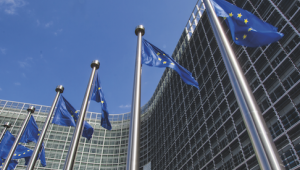Auditors also found that European Commission efforts to ensure Montenegrin authorities capitalised on EU investments somewhat lacking. For the period between 2007 and 2020, the bloc has committed to providing Montenegro with more than €500m in investment.
Of that amount, €179.13m was agreed by the end of 2015 for programmes to support legislative change and the establishment of institutions in Montenegro in areas such as public administration reform, transport and the environment.
Following an audit that concentrated on these three areas, ECA member Hans Gustaf Wessberg said Montenegro is progressing along the road to European integration. But he added the “speed of reforms…depends on the national authorities’ commitment to ensure the full effectiveness of EU support".
Because the programmes’ outputs were often not fully used or not followed up by the Montenegrin authorities, auditors found that the pace of change was slow and the impact of EU funds was lacking.
Despite this, with €235.7m allocated to Montenegro in the 2007-13 period, the commission still committed to delivering a further €270.5m for the 2014-20 period.
Auditors also highlighted that the majority of projects in the country did not set out a clear requirement for the national authorities to follow up and capitalise on EU investment.
While the European Commission has the tools to encourage national authorities to pursue reforms, auditors noted it is “not clear” whether or how these are used when the new laws and institutions supported by the EU fail to deliver results, the ECA’s report added.
Auditors also pointed out that the commission failed to exploit a useful way of strengthening Montenegro administrative capacity – decentralising the management of funds – despite this being a key aim of EU support to Montenegro
Overall, the ECA’s conclusions on EU support to Montenegro are more positive than their findings on the bloc’s aid to Europe’s poorest country, Moldova, but the auditors still stressed that funds for Montenegro are not having enough impact.
A European Commission spokesman said the commission has already taken steps to improve the impact of its financial support and ensure better follow-up by national authorities, including by embedding projects in a sectoral approach, strengthening conditionality of funds, and ensuring better coordination between regional and national support.
He added that while the commission agrees more needs to be done, it belives that "it is important to prioritise quality over speed of reforms, in particular in areas such as the rule of law where reforms required are often difficult and results take a certain time to materialise".













